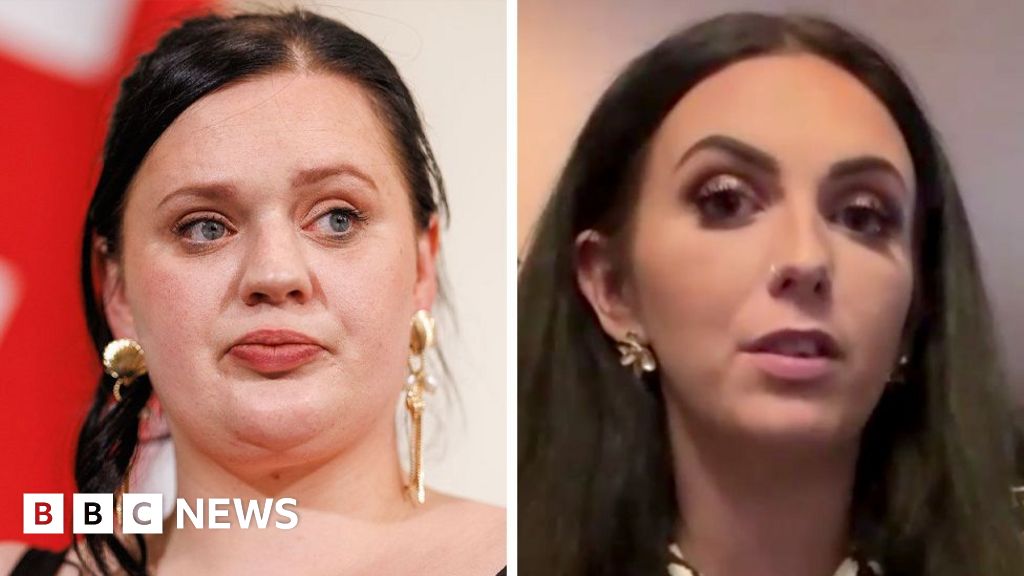A third abuse survivor has resigned from their role in the government’s inquiry into grooming gangs.
“Elizabeth” – not her real name – joined Fiona Goddard and Ellie Reynolds, who quit the inquiry’s victims and survivors liaison panel on Monday in protest.
In her resignation letter, Elizabeth said the process felt like “a cover-up” and had “created a toxic environment for survivors”.
Safeguarding Minister Jess Phillips has denied claims of a cover-up and insisted her government was “committed to exposing the failures” to tackle “these appalling crimes”.
Elizabeth, who is from Rotherham, said she felt the process had been “scripted and predetermined”, “rather than emerging from honest, open dialogue with survivors”.
“This sense of control and stage-management has left many of us questioning whether our voices truly matter, or whether we are being used to legitimise decisions that have already been made,” she added.
Survivors have been concerned that if people are already giving up on the inquiry it will not be able to gain the trust and confidence of others affected.
There is also frustration around the length of time it has taking to appoint a chairperson, with some seeing this as a delay tactic because of fears of what might be exposed.
The government is under pressure to come up with a plan that satisfies the survivors at the heart of this scandal.
Prime Minister Sir Keir Starmer announced in June there would be a national inquiry into grooming gangs covering England and Wales, with a panel of survivors set up to oversee the process.
However, a chairperson has yet to be appointed.
The BBC has been told former senior social worker Annie Hudson, who had been named as a potential chairperson, has withdrawn following recent media coverage over her candidacy.
One of the other names being considered is former deputy chief constable Jim Gamble.
A meeting between Mr Gamble and survivors took place earlier, with both sides said to have listened to each other’s perspectives.
Ms Goddard and Ms Reynolds had raised concerns about the suitability of the candidates shortlisted to chair the inquiry, arguing they should not have a background in policing or social work.
Ms Goddard, who was abused by gangs while living in a Bradford children’s home, said these services had “contributed most to the cover-up of the national mass rape and trafficking of children”.
Meanwhile, Ms Reynolds suggested having “establishment insiders representing the very systems that failed us” as potential chairs was a conflict of interest.
The three women have accused officials are trying to water down the inquiry by widening the scope beyond grooming gangs into broader issues of child sexual abuse and exploitation.
Elizabeth said she had seen “selective narratives being promoted – ones that appear to serve particular agendas, especially around issues of race and the narrative of widening the scope”.
She told the BBC she had wanted a chair who was “legally” trained and “impartial”.
Elizabeth also described how the atmosphere on the panel “became quite toxic” when “everyone came under suspicion” for leaking information to the media.
Ms Reynolds, who was abused by a gang of Pakistani brothers in Barrow, said the “final turning point” in her decision to quit was a move to widen the inquiry “in ways that downplay the racial and religious motivations behind our abuse”.
Phillips has said it is “untrue” the government is seeking to dilute the focus of the inquiry, insisting its scope will be “laser-focused”.
In a further statement on Tuesday, Ms Goddard reacted angrily to Phillips’s comments and labelled her denials a “blatant lie”.
Ms Goddard said there were “many” members of the survivors’ panel who were not victims of grooming gangs but different types of child sexual abuse and exploitation, and that only these individuals were pushing for a wider inquiry.
A Home Office spokesperson said the inquiry “will remain laser-focused on grooming gangs”, as Baroness Casey had recommended when calling for a national inquiry to be set up.
“In order to meaningfully consult with victims and survivors about the terms of reference, we need to ask them questions and listen to their responses.” the spokesperson added.
“That is not expanding the scope – it is ensuring their voices shape the inquiry.”
Responding to the resignations of Ms Goddard and Ms Reynolds in the House of Commons earlier, Phillips said she regretted the departure of the two women but added: “My door is always open to them.”
She also insisted “not all victims are of the same opinion” and she would continue to engage with all survivors.
Phillips added that the inquiry panel of victims from which Ms Reynolds and Ms Goddard resigned was not managed by the government, but by a grooming gang charity.
However, Conservative shadow home secretary Chris Philp said the government’s inquiry was “descending into chaos”.
He argued that ministers had been “forced” into holding the inquiry in June adding: “Perhaps that is why, months later, the government has said nothing substantive publicly.”
The Conservatives have called for the inquiry to be chaired by a senior judge to guarantee impartiality and restore faith in the process.
Phillips rejected that suggestion, arguing that Baroness Casey, who led a previous inquiry into the subject, had said she did not want a traditional judicial-led inquiry.
The minister also stressed the difficulty of finding a chair who was not attached to an institution “that didn’t fail these girls over the years, including our courts who took the children away from grooming gang victims, who criminalised some of them”.
“There is no institution in our country that hasn’t failed,” she added.


Comment ×